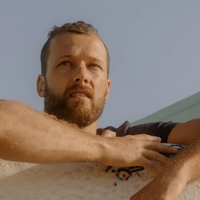It’s no mystery why coffee is one of the most popular beverages in the world. There’s the obvious caffeine kick, which many people swear they can’t live without. There’s also the taste, the smell and the ritual of making a morning cup or walking to the neighborhood coffee shop.
But every latte-art rose has its thorn. Caffeine is a stimulant drug, and with all the caffeine coursing through those beans, that makes coffee a drug, as well. Like many drugs, coffee can be physically addictive, and like any addiction, it can hold you hostage. What was once a luxury becomes a necessity, and missing your daily (or hourly) dose can eventually do more harm than drinking it does good.
Caffeine Withdrawal
If you’re at a point in your life where you need coffee just to feel normal, you may have a caffeine addiction. That craving feeling you have in the morning isn’t a healthy thirst for coffee; it’s a symptom of withdrawal, and it’s not going to go away unless you purposefully wean yourself off of it.
A coffee detox can help you determine just how severe the addiction is, and show you if you’re better off without it. While you owe it to yourself to see what life is like on the other side, a detox can be tough. In fact, caffeine withdrawal is now classified as a mental disorder, and can cause symptoms like irritability, drowsiness and headaches. The more reliant your body is on caffeine, the harsher the withdrawal symptoms will be.
If you decide to detox, know that regular caffeine users will typically experience withdrawal effects within 12 to 24 hours of abruptly stopping caffeine intake, and peak withdrawal effects usually begin between 24 and 51 hours. It’s also important to note that everyone’s body responds differently to caffeine due to the CYP1A2 gene, which determines if someone is a fast or slow caffeine metabolizer. To find out if you metabolize caffeine slowly or quickly, read our post on CYP1A2 by Dr. Haran Sivapalan.
How to Detox
To minimize these symptoms while detoxing, adjust your detox process based on how much you typically drink.
For example, if you’re a daily drinker, but only drink one or two cups, going without coffee for a full week shouldn’t be too tortuous, and should be enough time to get a good feel for what a coffee-free life is like.
But if you drink all day every day, it could take a whole month to feel the benefits of the detox. If you drink this much, don’t quit cold turkey. Switch between regular and decaf throughout your day, gradually upping the amount of decaf and reducing the amount of regular. Soon, you can switch between decaf and tea (another source of caffeine).
The more gradually you wean, the easier it will be on your body, but the longer it will take to feel the positive effects of the detox.
And those positive effects could be life changing.
Benefits of a Coffee Detox
1. Reduced Anxiety
Caffeine is a stimulant, and stimulants can cause anxiety, as well as augment baseline anxieties in users with pre-existing anxiety disorders. The reason caffeine energizes you in the first place is because it stimulates your central nervous system and increases motor activity, resulting in both arousal and reinforcing effects. But this type of stimulation can trigger your fight or flight response, leading to anxiety, nervousness and moodiness. In fact, caffeine use in adolescence can actually lead to higher anxiety as an adult.
Caffeine also increases energy metabolism in the brain while decreasing cerebral blood flow, resulting in an under-supplying of blood to the brain, or cerebral hypoperfusion. Hypoperfusion like these can also cause anxiety.
If you’ve noticed an uptick in anxiety since you started drinking coffee, kicking the habit might reveal your anxiety’s true nature. And if not, it will help narrow it down the roots of that anxiety.
2. Improved Sleep
Many coffee drinkers give themselves rules: Only three cups a day. Always eat something when drinking. Tip extra if the barista draws a smiley face in the foam. Another big rule is what time of day to stop drinking coffee, because if consumed too close to bedtime, the caffeine can make it difficult to fall asleep, and can even disrupt your Rapid Eye Movement (REM) sleep cycle.
REM sleep is an important phase of our sleep cycle because it stimulates the areas of our brain responsible for learning, thinking and organizing information. But caffeine’s arousal effects can lower our ability to move into the REM cycle and sustain this deeper stage of sleep.
Even with self-imposed cut-off times, coffee can still affect your sleep. For example, caffeine intake within six hours of falling asleep can reduce your total sleep time by one hour, and the older you are, the more powerful these effects can be, as it takes the body longer to process caffeine.
3. Lowered Blood Pressure
There is a clear correlation between higher caffeine intake and higher blood pressure, though, strangely enough, scientists haven’t pinned down exactly why it happens. One theory is that caffeine may narrow your arteries by blocking a hormone that helps keep them wide. Another theory is that caffeine releases extra adrenaline, which in turn increases blood pressure.
Whatever the reason, higher blood pressure can eventually lead to health problems like heart disease or stroke. A detox will give those arteries a break, and may pay dividends down the line.
4. Healthier Teeth
Saliva is the mouth’s best defense against bacteria, but the caffeine in coffee dries out your mouth. Without that saliva to fend off those nasty microorganisms, teeth can eventually start to decay. What’s more, the color and acidity of coffee can also stain your teeth.
If you think coffee might be to blame for a lackluster smile, a good detox will help root out the culprit. If it is coffee, your breath should start smelling better and your teeth should grow stronger and brighter. The dental industry spends a lot of time stressing the importance of flossing and, while that’s certainly a significant component of dental hygiene, giving up coffee is another effective strategy for shutting up judgmental dentists.
5. Freedom
Being beholden to coffee can put constraints on your life. If you can drink a cup here and there without feeling any ill effects, then keep doing what you’re doing. But if missing a mug messes up your day, it’s time to shed the shackles. There are gentler ways to get caffeine, and other, non-addictive ways to boost energy and focus. Once you’ve detoxed from coffee, see what works for you.
Coffee Alternatives
- Matcha Tea is a type of green tea made from powdered young green tea leaves. Along with caffeine, matcha also contains L-theanine, an amino acid that helps calm the mind without causing drowsiness.
- Golden milk is a caffeine-free coffee alternative made from milk heated with invigorating, wake-me-up spices such as turmeric, cinnamon, ginger, black pepper and cardamom.
- Smoothies are a great caffeine alternative because you can pretty much add whatever you want. You can make a smoothie that has enough carbs, fiber, antioxidants and protein to fill you up and give you much-needed morning energy.
- Coconut water is another caffeine-free substitute, and offers a boatload of potassium, an electrolyte that produces energy, maintains muscle movement and regulates blood flow.
- MUD is made from a combination of organic ingredients such as cordyceps, cacao, lion’s mane, and chaga, which have been scientifically proven to boost energy and focus without burdening you with the negative side effects you’d get from caffeine.
Written By \ Josh Kraus




